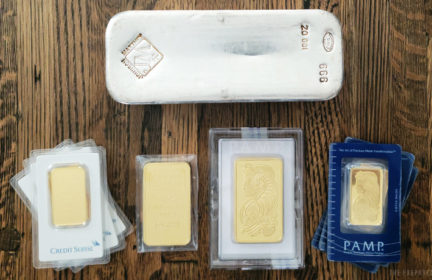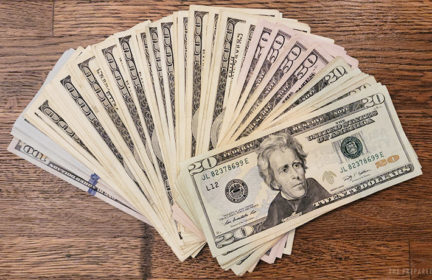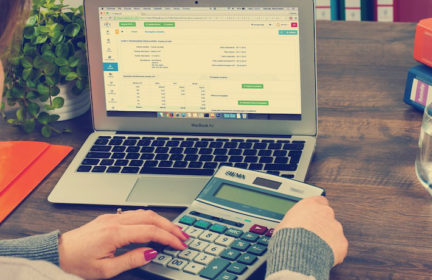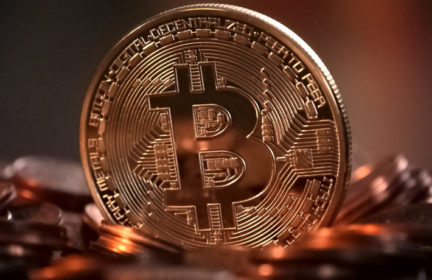Inflation preparedness
Alternatives to the US dollar (eg gold, bitcoin) are frequently discussed as insurance against inflation. But are there other steps one should be taking to prepare? Should a renter try to become a homeowner? What storable goods are likely to become expensive? What storable (yet necessary) goods are likely to become scarce?
-
Comments (16)
-
Bob - September 2, 2021
Good morning Calvin,
The inflation we are experiencing is “artifically” produced. It’s not like so much gold dust mined from the rivers of 19th century California that a draft beer at the tent town’s saloon cost much more that otherwise expensive San Francisco.
Gold or bitcoins are not hedges for the private citizen prepper.
In practical terms, what a prepper does in re preparedness is the route to protect against inflation.
It’s a developing issue whether a rester should immediatly seek homeownership. Little equity is obtained nowadays. Home owners are taxed to the hilt re the city/county real estate taxes. Here, the property will be assessed for increased value and thus larger real estate taxes. Nearly all homeowners will be supporting the power utility companies even if not a power customer. The best illustration to support this statement are the arrangements Dominion Energy has with the Commonwealth of Virginia.
Scarcity will be noticed (as per recent historical and current events) re O-T-C pharma, personal care items and related supplies. Examples will be difficulty to find the balms like white petroleum (one brand is Vaseline) and anti-fungal powders and creams.
Can’t offer comments on storable goods. Here, everything is already rising in cost. I am loaded with canned coffee. We have a small co-op as part of our small prepper group here and our procurements costs are ideal.
-
Bob - September 3, 2021
https://www.insurancejournal.com/news/national/2021/09/02/629896.htm
Just read above linked article.
Besides taxes, there’s the home’s insurance … actually, the home dweller and the financier eg bank … Article tells of flood insurance. Once this insurance is given to the private sector to sell to qualified homeowners – it’s not going to be a nominal cost – think this out, ask questions, discuss,
The rest is inherently understood.
-
-
Bill Masen - September 3, 2021
Fixed Price for the year
Well YES in general preparing itself is an anti inflationary act. All common consumer goods (foods, cleaning materials, medical supplies etc) prices rise on average a few times each year even if its only a few cents each time. So by bulk buying many items that are on offer or discounted at the start of the year you buy at that fixed price. So as the year goes and you consume that food you do so at the cheaper price you originally paid for it, and not at the price it is currently at in the shops.
TRANSPORT COSTS reduce inflationary costs
Also one often missed point is that bulk buying a years supply of say TP, Kitchen Rolls, Bleach, Laundry detergent, Soap, Toothpaste long shelf life food (cans etc) you only have to drive to the Mall / Discount store ONCE.
This saves you the cost of vehicle fuel / wear and tear you would face having to go shopping every week or month.
Discounted
And if you can bulk buy certain goods from online sellers like Amazon with free delivery you can often get a discounted purchase price and NO transport costs to yourself.
And of course food / fuel / materials / clothes purchased as themselves an inflation proof barter currency when cash may be worthless and credit unavailable.
Better to have it and not need it, then need it and not have it ,
or not be able to afford it , or unable to find it.
-
Seasons4 - September 3, 2021
Hi, Calvin. You have good questions. As others have said, general preparedness actions and mindset are a good place to start regarding inflation, deflation, or whatever happens. That includes skill development, social / neighborhood network development, physical and mental health attainment and maintenance, and so on.
I think diversification of assets, little or no debt, and higher than “normal” holding of cash or equivalents (e.g., certificates of deposit) are smart choices. I also rely on experts and pay them since I can’t or don’t want to keep up with everything in every field. So I pay an investment advisor, for example, and use “dollar cost averaging” to purchase investments over time rather than all at once.
Regarding real estate, you might subscribe to free newsletters often offered by local real estate firms. They might paint too rosy a picture, but they may include statistics for the local area that are helpful. The real estate market where I live is scorching hot because people apparently are leaving cities and moving to areas within reasonable commute to hospitals and shopping. Or they are buying second homes, all of which is squeezing working families and people on limited incomes.
I moved from a condo to a single-family home recently. To increase the odds of my offer being accepted, I didn’t have a home inspection as a contingency. That’s apparently fairly common these days. That has meant quite a few repairs and upgrades and money spent after the purchase. Homes can be money pits, so research, save, but don’t rush in, that’s my counsel for what it’s worth.
The advice used to be, “Buy the worst home in the best neighborhood.” With my preparedness mindset, I think it’s smarter to “Buy an average home in an average neighborhood,” and be emotionally prepared to leave it, if you have to for whatever reason.
For me, preparedness means that I might have to shelter in place or I might have to leave. That’s the basic diversification that I work around.
Best regards to you.
-
Pops - September 3, 2021
Hi Calvin,
Basic answers to rent vs buy can be found by googling “rent vs buy”. It is no secret that homeowners pay wealth tax, interest, insurance, maintenance, etc—but, let’s face it, renters pay those anyway, it is just the appreciation that goes to the landlord. Home values vs rents are surprisingly local so google your city and find out.
-
Bob - September 3, 2021
Good afternoon Pops,
That famous word “if” comes into play.
“If” Calvin spent substantial time joining a small group, they could set him up in
8A rental units – or the spinoffs. So much is subsidized by D.C. the renter pays little of anything.
Can’t say much on the web other than to say some homeless veterans are now faring AOK because of external help navigating the bureaucracy. This would be a couple.
-
-
The Prepared - December 7, 2021
Sharing this multi-part post from a community member who works in Big Finance (with relevant degrees etc.) but has to share this anonymously bc of their employer. This isn’t endorsed, but we made slight edits for formatting/clarity only.
“hyper-inflation [aka currency collapse] unleashes such greed, violence, unhappiness, and hatred, largely bred from fear, as no society can survive uncrippled and unchanged.” – When Money Dies
80% of Americans now describe ‘inflation’ as their number one concern.
There have been many times in history when countries have suffered hyper-inflation. I’m going to ignore the blatant examples that exist today (i.e. Venezuela 2016, Turkey 2021, Zimbabwe 2007) because I’m only worried about hyper-inflation in modern Western economies. Historical examples include:
- Post-WWI Austria (1914-1921): Annual inflation of 10,000 percent in 1921 alone.
- Weimar Germany (1914-1923): Note, in the first year inflation was only 10% but it eventually reached 1 quintillion percent.
- Great Britain (1914-1921): The pound lost half it’s value (as measured against gold) in 1915.
- France (1914-1921): The franc lost 70% of it’s value from 1914 to 1921.
- Great Depression (U.S. 1929-1932): The dollar halved in value (in gold terms).
- Long Depression – called the ‘Great Depression’ before 1929 (U.S. 1873-1879): Began with the Coinage Act, which banned the use of silver as currency in the U.S.
- French Revolution – Reign of Terror (1789-1799): Assignats lost 99% of their declared value by 1796.
- American Revolution (1775-1783): The phrase “Not worth a continental” meant that the colonies’ currency (the Continental Dollar) was worthless.
These examples are enlightening because similar sociological changes occurred:
- Everyone who can, emigrates. Generally, this is the most affluent 5% of the population, although business owners cannot emigrate without forfeiting their businesses.
- Everything ‘movable’ that can be exported (from produce to pianos) is moved out of the border so it can be traded for sound currency.
- Politicians will blame corporations (who can export their earnings) and business owners (who don’t want to trade their inventory for worthless currency).
- People earn more from speculating on currency exchange than they can from their day jobs.
- Jealousy runs rampant, and those with assets conceal them from their neighbors.
- Breakdown of law and order. Urban mobs invade the surrounding countryside and take the food or fuel they need to survive.
- Governments criminalize the use of foreign currency and/or precious metals for trade, forcing much of the economy to the black market. Every sane person ignores these rules.
- Strikes of government workers become commonplace, as do anti-government riots.
- The re-emergence of a barter economy as commerce slows. Farmers and merchants don’t want to exchange their inventory (which is inflation protected) for your currency (which is not). So people start exchanging inventory for inventory.
- Everyone assumed ‘It can’t get any worse’, but it does. Repeatedly, and for years on end.
(cont’d…)
-
The Prepared - December 7, 2021
(cont’d…)
The Goal: Diversification & Tolerable Worst-Case Scenarios
The first thing I would emphasize is that I believe strongly in diversification (in fact, this is probably the most important lesson learned from a degree in finance). So I would recommend that readers apply several of the suggestions below, rather than pursuing one single recommendation in the extreme.
I would also state that our goal is not ‘preparing for a financial doomsday next week’. Our goal is to protect ourselves from hyper-inflation triggered crises, while heading toward a pleasant retirement if our fears of a crisis are not realized. I therefore suggest that you apply these recommendations to at
most 10% of your financial worth.Ways to store your money in case of hyper-inflation
I am often asked, “So what CAN you put money into if we’re in a giant bubble and the currency collapses?” Here’s everything I’ve found on the subject:
Pantry (or Inventory): Stock a pantry. In a world of rising prices, buying stuff early always makes sense. In fact, buying ANYTHING that will retain its value makes sense. If you run a business that sells essentials (i.e. heating oil, toilet paper, toothpaste), that inventory is a good thing to have your money in if there is a crisis.
Property: Up until the Industrial Revolution, land was the dominant financial asset. It’s worth is strongly influenced by population growth as well as mortgage rates, but it’s not a bad way to invest your money. Remember, a landlord can always tell you to leave, but if you own your property that will never be a problem.
Income Generating Businesses: There will always be demand for certain services. So if you own (or run) a business that satisfies a non-discretionary consumer need (i.e. electrician, plumber, dentist, farming, auto mechanic, propane delivery, etc.) you should do well in a hyper-inflationary scenario. Similarly, if your business has inventory (i.e. of food, auto parts, propane, ammunition, etc.) the value of that inventory protects you from hyper-inflation as well.
Precious Metals stored in a bank lockbox: You can buy gold and store it in a bank lockbox (although most banks don’t want to hold your gold and they may not insure it).
- Negatives – Lockboxes: I don’t recommend storing your gold at a bank because the bank will probably be closed if hyperinflation hits. Most governments will declare bank holidays, which makes this an unreliable place to store your valuables.
- Negatives – Bars: Don’t buy gold bars or silver bars. Professionals will require someone to ‘assay’ the bar before they will buy it back from you. Stick with buying coins from a mint. The market for U.S. minted gold and silver coins is usually the largest.
- Negatives – Government Confiscation (Executive Order 6102): The U.S. confiscated gold from bank vaults in 1933, so the federal government could theoretically do this again. In practice though, the U.S. government only seized the gold from the BIG deposits held by financial institutions, corporations, and the super-wealthy… the FBI didn’t show up at middle-class houses to search for gold. Gold jewelry was also never sought by the U.S. government, and there was an exemption for every citizen to own up to 4 oz of gold (~$10,000 in today’s prices).
Precious Metals with physical storage: This option works well if you own your property, you have a heavy safe, and you are armed. Bullion coins are the easiest to verify authenticity (so don’t go buying gold or silver bars), although bars have been sold out on distributor websites for years… which makes me think there are a LOT of people stockpiling precious metals.
- Negatives – OpSec: This is not a good option if you or your family will publicize how much gold you keep in your house.
- Negatives – Home Defense: If you are not armed, sitting on a pile of gold is one way to attract lots of unwanted violent attention.
Foreign Currency: If hyper-inflation hits it rarely hits multiple countries at the same time (Czechoslovakia, Austria, Germany, France, and the UK in 1915 being an exception). So if you have some money on hand from a (stable) country like the UK, EU or Switzerland, this gives you some protection.
Bitcoin: I don’t believe in Bitcoin, but I put a small amount of each paycheck into it… just in case I’m wrong. There is additional upside because it is portable.
- Negatives – Theft: Billions of dollars are stolen from the largest exchanges (i.e. Mt. Gox and Bitfinex), and none of these losses are insured.
- Negatives – Lost Password: If you forget the code for your bitcoin, your money is gone forever. The creator of bitcoin (Satoshi Nakamoto) has $30 billion worth of bitcoin but has never touched it… so many presume he/she lost the code to access it.
-
The Prepared - December 7, 2021
(cont’d…)
Where can I put my 401K?
TIPS (Treasury Inflation Protected Securities): These are U.S. Treasury bonds that are adjusted for inflation every 6 months. This isn’t a perfect way to protect your money from inflation, but I would say your money will be 50% protected. I own TIPs.
Paper Gold: Most ETFs and mutual funds don’t buy physical gold; they buy a contract for gold to be delivered at a future date (called futures or options). The problem is, there are 100x more in contracts than there is physical gold to back it all up. So this is one way to safeguard your money, but a bad one if there is a severe economic crisis (like hyper-inflation). I own some paper gold.
Gold Mining Companies: Companies that are sitting on piles of gold will be worth more if hyper-inflation occurs (assuming the government doesn’t take over the mine).
Oil Companies: Oil companies used to be a good way to protect yourself against inflation. I stay clear of them now though, because of the uncertainty around Peak Oil.
Swiss Francs: The Swiss had a front row seat to the German and Austrian hyper-inflation before WW2. As a result, of all currencies that exist today, the Swiss franc has retained it’s value the best over the past 120 years. I own swiss francs.
Consumer Discretionary Stocks: People will still want diapers, toilet paper, toothpaste, and soap if hyper-inflation hits.
Agricultural Stocks: I don’t own any of these, but people still have to eat in a crisis.
Sources for the entire thing:
- When Money Dies by Adam Fergusson
- Manias, Panics and Crashes: A History of Financial Crises. 6th Edition. By Charles P. Kindleberger
- The Great Depression. By Charles P. Kindleberger
- Devil Take the Hindmost. By Edward Chancellor.
- Von Mises Institute.
-
Supersonic - December 8, 2021
Thank you anonymous writer for this well written summary of the dangers and things we can do to protect us against inflation.
I have a few questions and know the author probably can’t comment to protect his identity, but if anyone has any insight I’d be grateful to hear them.
In regards to the having some money in a foreign currency like the Euro or Swiss Francs, I’ve been to airports where they will exchange your US bills for some Euros. Is this the best way to do some minimal foreign currency trading and have actual paper bills in your hand? Or is there some online digital exchange that is a better recommendation?
I see many people recommend precious metals, but during hyper inflation or economic collapse, wouldn’t people rather have the toilet paper or can of beans than a silver dollar? I just don’t see how we all will agree and trade precious metals back and forth.
Again, thank you for the great post. It has given me many things to think about, and slightly panic and stress about.
-
brekke - December 9, 2021
I’m definitely not an expert, but from what I’ve read the precious metals vs. commodities thinking is that not everyone will have commodities stored, but they may have precious metals in the form of jewelry/coins. Those that do have a surplus of commodities are able to trade for the precious metals and then trade those precious metals for things they need (or store them for better times if they do not need anything). So, it’s good to have some of each, but not rely solely on either.
-
Pops - February 7, 2022
“In regards to the having some money in a foreign currency like the Euro or Swiss Francs…”
The US dollar IS the world reserve currency. Right now with the highest inflation in a long while the dollar is trading in the same range it has been since the US started exporting oil in 2015.
Put another way, other countries back their own currency and prepare for the future by holding to… US dollars. Foreign reserves of us dollars are far above those of China who is the next largest. Total reserves around the world are $12 trillion and those in US bucks are $7 trillion.
Having some swiss francs is cool but just like a gold bar that no one wants —might only draws unwanted attention.
-
TheFuries - April 12, 2022
One of the best places to exchange foreign currency is at your regular bank – provided they work internationally. All the big banks like Bank of America, Chase, etc. offer this to it’s clients. USAA doesn’t really have brick and mortars, but you can still get some albeit at a higher rate. You can also put in an order for foreign currency with your bank online. I do this whenever I work abroad. Exchange rates at most other places are terrible.
-
Boris J - February 5, 2022
TIPS have absolutely terrible rates now. “I-Bonds” are at over 7% interest right now. You’re allowed to put in $10k+5k / person / year (the extra $5k must be from a tax refund although I’m sure you can just overpay on purpose).
Rates are locked in for 6 months and adjusted based on CPI after. They can’t go negative.
There’s a minimum holding period of 1 year, and a few other minor pieces of fine print you should read up on. But if you want a safe high interest investment, this is currently WAY better than TIPS.
-
brekke - December 9, 2021
Thank you, Anonymous! Very helpful article and list of resources for further reading.
-
Pops - February 6, 2022
The problem I imagine with precious metals is you buy at retail and sell at wholesale. 50 years from now that might have been a good idea but not next month or year. The other problem in a bad case would be trying to convince some non-pro that what you have really IS gold. All the fanfiction scenarios about FRNs becoming worthless the day after armageddon presume that everyone left is a survivalist. The kid next door is gonna sell you his 10-speed for 8 or 10 $20 bills way before he trades for a rock, shiny or not. But it is very likely that he tells everyone of his friends that his nextdoor neighbor has a buttload of gold…
Buying a house right now may not be a great idea, prices have escalated crazily in the last couple of years. EVERYONE will tell you now is the time to buy, that this time is different, but every time before they have been wrong. Prices will have a correction along with everything else. In fact the average is about 7 years and we’re way past that. If you can DIY, there may be some deals left but mostly sellers are asking ridiculous prices and getting them.
Long run, renting is basically like squatting in my mind. Initial cost of buying is high but in a few years, once appreciation starts to kick in (and your sweat equity) you’re ahead of the game—unless you buy at the peak. Pay it off early, and you’re set. I’ve not paid rent in 25 years and equity has long surpassed costs: taxes, insurance upkeep, etc. I could be burned out or the Sheriff could take a liking to it I suppose but otherwise I have more rights than any other class of citizen … except whoever owns the Sheriff.
If you are a real doomer, buy the cheapest out of the way place you can manage and still make a living and pay it off as fast as possible. Build your own infrastructure, first thing is to get (own) solar and an EV. Then more PV to power your house. Air-seal, superinsulate, triple-glaze, heat-pump. Then get your own water & septic. Build you own food infrastructure as much as possible, trees, brambles, small animals on grass if possible, etc.
Says me.
;^)
-
- News for the week of 2025-07-07 - 2 days ago
- Fun ways to teach kids outdoor/survival skills - 1 week ago
- News for the week of 2025-06-30 - 1 week ago
- News for the week of 2025-06-23 - 2 weeks ago
- News for the week of 2025-06-16 - 3 weeks ago
This forum is heavily moderated to keep things valuable to as many people as possible. Full community policies are here. The basics:
- 1. Be nice to each other.
- 2. Stay focused on prepping.
- 3. Avoid politics, religion, and other arguments.
- 4. No unfounded conspiracies, fake news, etc.
- 5. Debate ideas, not people.



